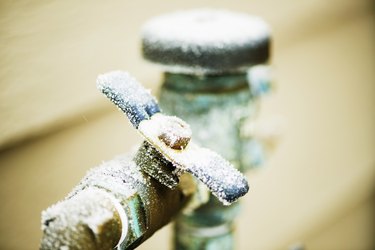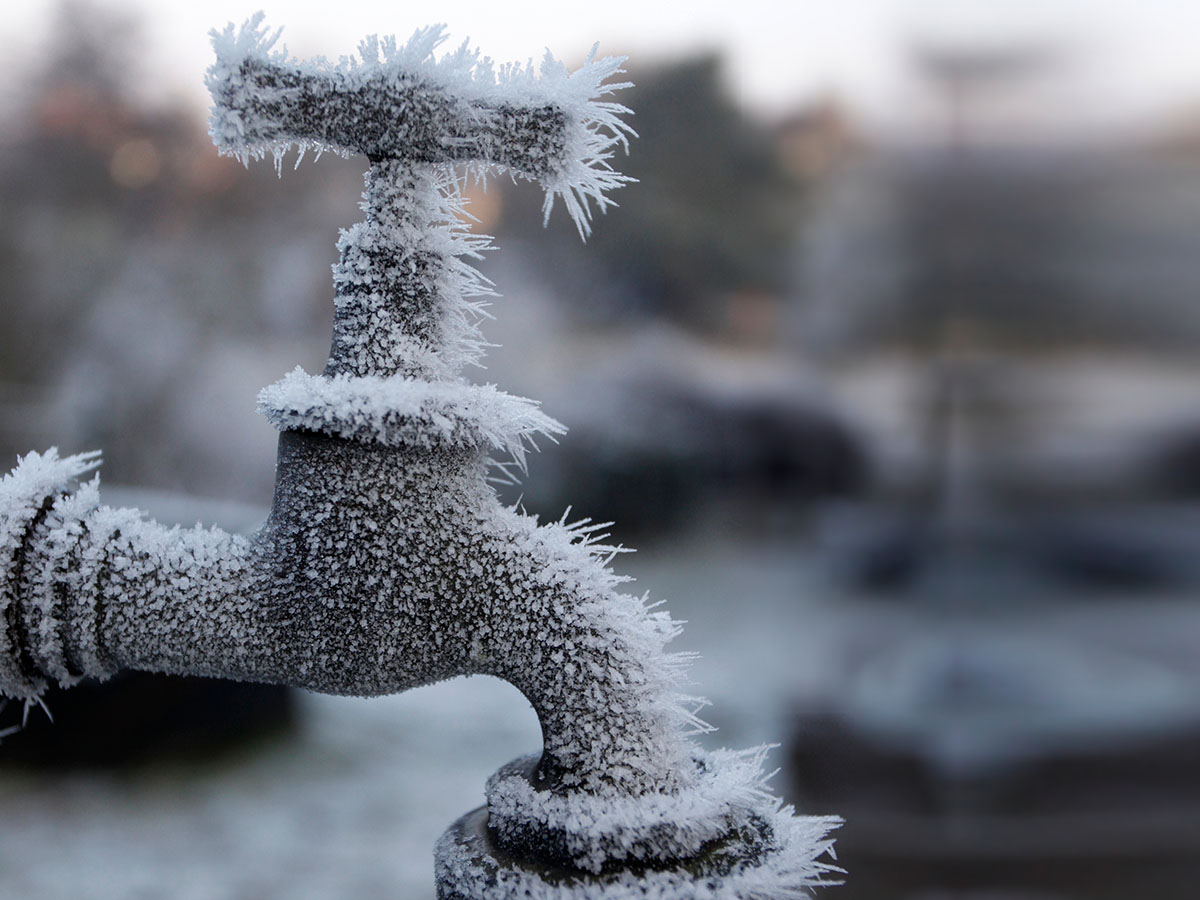Advice for Avoiding Frozen Plumbing in Cold Weather: Specialist Tips
Advice for Avoiding Frozen Plumbing in Cold Weather: Specialist Tips
Blog Article
We have come across this article relating to How To Avoid Freezing Pipes listed below on the web and accepted it made good sense to relate it with you on this site.

Winter can wreak havoc on your plumbing, particularly by freezing pipelines. Below's exactly how to prevent it from happening and what to do if it does.
Introduction
As temperature levels decrease, the danger of frozen pipelines increases, possibly causing costly repair services and water damage. Understanding exactly how to prevent frozen pipes is vital for house owners in chilly climates.
Avoidance Tips
Protecting at risk pipes
Wrap pipes in insulation sleeves or make use of warm tape to protect them from freezing temperature levels. Focus on pipelines in unheated or exterior areas of the home.
Home heating techniques
Keep indoor spaces appropriately warmed, particularly areas with plumbing. Open closet doors to enable cozy air to flow around pipes under sinks.
Just how to identify icy pipes
Look for decreased water circulation from taps, uncommon smells or noises from pipes, and visible frost on exposed pipelines.
Long-Term Solutions
Architectural changes
Think about rerouting pipelines far from exterior walls or unheated areas. Add extra insulation to attics, basements, and crawl spaces.
Upgrading insulation
Invest in high-quality insulation for pipes, attics, and wall surfaces. Appropriate insulation aids maintain regular temperature levels and decreases the threat of icy pipelines.
Safeguarding Outside Pipes
Garden tubes and outdoor taps
Detach and drain pipes garden pipes prior to winter months. Install frost-proof faucets or cover exterior taps with insulated caps.
Recognizing Icy Pipes
What triggers pipes to ice up?
Pipelines ice up when exposed to temperatures listed below 32 ° F (0 ° C) for extended durations. As water inside the pipelines freezes, it increases, putting pressure on the pipe walls and possibly causing them to break.
Threats and problems
Icy pipelines can result in water disruptions, residential or commercial property damage, and costly repair services. Ruptured pipes can flood homes and create comprehensive architectural damages.
Signs of Frozen Pipes
Recognizing icy pipes early can avoid them from rupturing.
What to Do If Your Pipes Freeze
Immediate activities to take
If you believe frozen pipes, maintain faucets available to alleviate stress as the ice thaws. Use a hairdryer or towels soaked in warm water to thaw pipelines slowly.
Verdict
Protecting against frozen pipelines requires aggressive steps and quick feedbacks. By recognizing the reasons, signs, and safety nets, home owners can secure their plumbing throughout winter.
Helpful Tips to Prevent Frozen Pipes this Winter
UNDERSTANDING THE BASICS: WHY PIPES FREEZE AND WHY IT’S A PROBLEM
Water freezing inside pipes is common during the winter months, but understanding why pipes freeze, and the potential problems it can cause is crucial in preventing such incidents. This section will delve into the basics of why pipes freeze and the associated problems that may arise.
THE SCIENCE BEHIND FROZEN PIPES
When water reaches freezing temperatures, it undergoes a physical transformation and solidifies into ice. This expansion of water as it freezes is the primary reason pipes can burst. As the water inside the pipe freezes, it expands, creating immense pressure on the walls. If the pressure becomes too great, the pipe can crack or rupture, leading to leaks and water damage.
FACTORS THAT CONTRIBUTE TO PIPE FREEZING
Low Temperatures: Extremely cold weather, especially below freezing, increases the risk of pipes freezing. Uninsulated or Poorly Insulated Pipes: Pipes located in unheated areas, such as basements, crawl spaces, or attics, are more prone to freezing. Insufficient insulation or lack of insulation altogether exacerbates the problem. Exterior Wall Exposure: Pipes running along exterior walls are susceptible to freezing as they encounter colder temperatures outside. Lack of Heating or Temperature Regulation: Inadequate heating or inconsistent temperature control in your home can contribute to frozen pipes. PROBLEMS CAUSED BY FROZEN PIPES
- Pipe Bursting: As mentioned earlier, the expansion of water as it freezes can cause pipes to burst, resulting in significant water damage.
- Water Damage: When pipes burst, it can lead to flooding and water damage to your property, including walls, ceilings, flooring, and personal belongings.
- Structural Damage: Prolonged exposure to water from burst pipes can compromise the structural integrity of your home, leading to costly repairs.
- Mold and Mildew Growth: Excess moisture from water damage can create a favorable environment for mold and mildew growth, posing health risks to occupants.
- Disrupted Water Supply: Frozen pipes can also result in a complete or partial loss of water supply until the issue is resolved.
WHY CERTAIN PIPES ARE MORE PRONE TO FREEZING
- Location: Pipes located in unheated or poorly insulated areas, such as basements, crawl spaces, attics, or exterior walls, are at higher risk of freezing.
- Exterior Pipes: Outdoor pipes, such as those used for irrigation or exposed plumbing, are particularly vulnerable to freezing as they are directly exposed to the elements.
- Supply Lines: Pipes that carry water from the main water supply into your home, including the main water line, are critical to protect as freezing in these lines can affect your entire plumbing system.
- Underground Pipes: Pipes buried underground, such as those connected to sprinkler systems or outdoor faucets, can be susceptible to freezing if not properly insulated.
https://busybusy.com/blog/helpful-tips-to-prevent-frozen-pipes-this-winter/

Do you like more info about Helpful Tips to Prevent Frozen Pipes this Winter? Try to leave feedback down the page. We would be happy to find out your opinion about this blog. We are looking forward that you come back again later on. Do you know about somebody who is in to the topic? Be sure promote it. Thank you for taking the time to read it.
Booking Report this page